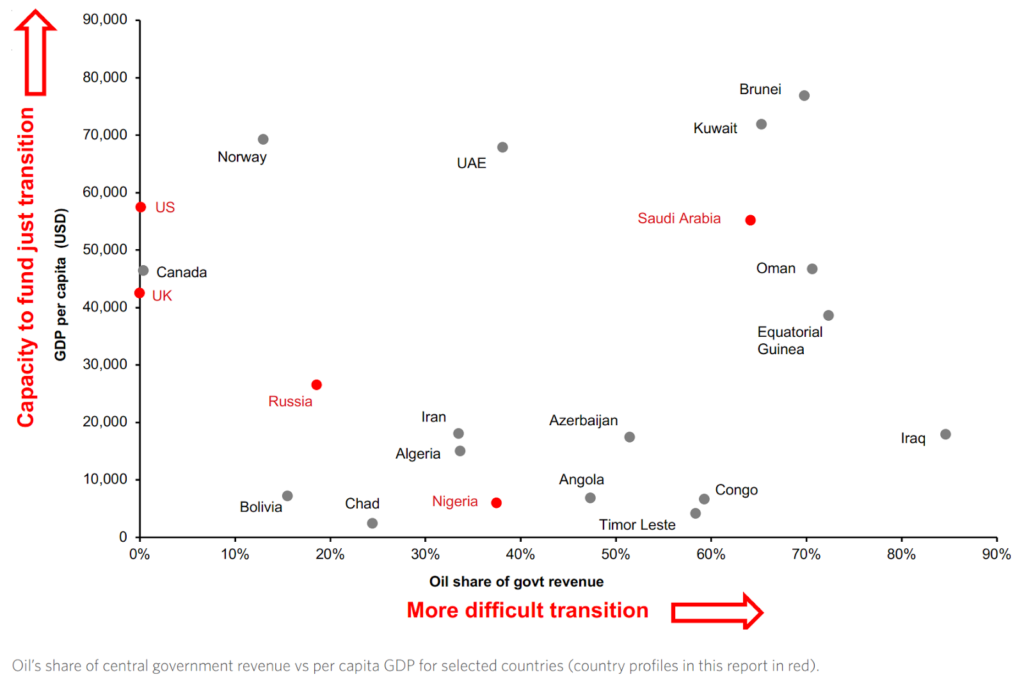In his opening remarks this week, UN Secretary-General Antonio Guterres said « our addiction to fossil fuels is pushing humanity to the brink. We face a stark choice: Either we stop it — or it stops us ».
ECO sees this as yet more evidence that the world needs to tackle fossil fuels head on. The challenge is to do so in a fair way, rather than just crashing the economies of both fossil dependent and fossil-export dependent countries.
That is where the new report of the Civil Society Equity Review, endorsed by more than 200 civil society organisations from around the world, comes in. A Fair Shares Phase Out: A Civil Society Equity Review on an Equitable Global Phase Out of Fossil Fuels highlights the terrible truth driven home by the Production Gap reports : we’re on track to produce more than twice as much fossil fuels as are compatible with 1.5°C. But it doesn’t stop there. The report also shows that while wealthy country pledges fall far short of their “fair shares”, developing countries are, for the most part, making pledges that approximately correspond to their “fair share”.
Developing countries, as it turns out, must do far more than their fair shares if we’re to stabilise the climate system. To that end, they’ll need far more support than is currently on offer. Moreover, this support will have to take into account their capacity limitations as well as their dependence on fossil fuels, which often spans their entire economies.
Enter the challenge of “supply-side equity”, where Fair Shares Phase Out finds substantial differences between fossil-fuel-extracting countries, both with regards to how dependent their economies are on fossil extraction and with respect to their financial capacity to transition away from extraction dependence. Recognising these differences helps identify which countries should phase out extraction first and fastest (those with more capacity and less dependency) and which ones will need international support if they’re to follow along.

Key recommendations from A Fairs Shares Phase Out include:
- The wealthiest polluters must contribute their “fair share” and deliver on long overdue commitments and cut domestic emissions deeper and faster while supporting less wealthy nations by providing climate finance for technology, adaptation and, of course, loss and damage.
- Recognising fossil fuels as key contributors to the climate crisis and creating new pathways and international platforms to urgently end their expansion, phase out production and fast-track just transitions for all countries and communities.
- Prioritising international cooperation with fossil fuel dependent countries that are least able to adjust by providing resources and technical support for renewable energy systems, a just transition for workers and communities as well as economic diversification and transformation;
- Strengthening the building blocks of a fair share phase out, including a First Movers Club of countries committed to end financing and extraction of fossil fuels, a registry of global fossil fuel reserves to increase transparency and accountability, a commission dedicated to exploring international legal instruments such as a fossil fuel non-proliferation treaty to equitably align production with 1.5°C;
- Changing the rules of global trade, investment, finance and technology to increase “policy space” for governments expediting emergency policies and exploring new programs to encourage commerce that puts the rights of people and planet before the rights of fossil fuel shareholders.